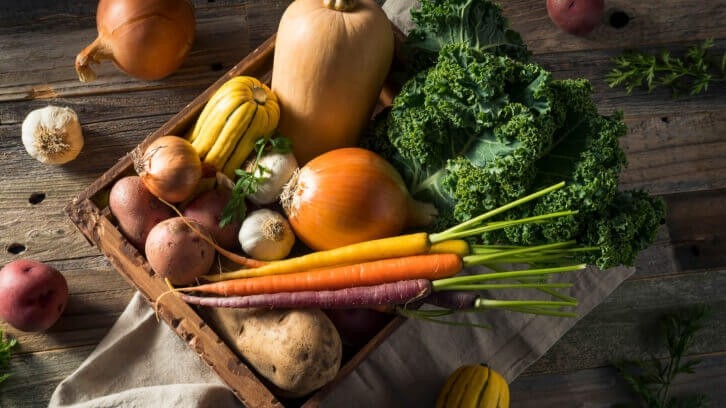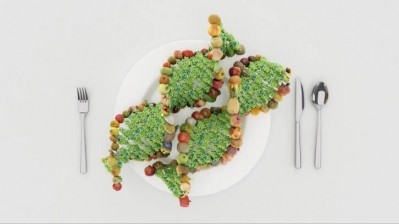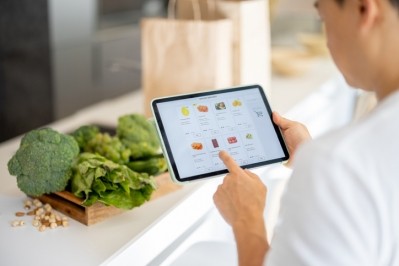Partnership for a Healthier America and Instacart tap D.C.’s nutrition programs to improve fresh produce access for underserved families

Good Food at Home’s program provides 500 families with a four-month complimentary Instacart+ membership and a $60/month produce credit for three consecutive months through Instacart, including free delivery and pickup on orders over $35, reduced services fees on every order and 5% credit back on eligible pick up orders.
D.C. is the next city to pilot the produce credit model via Instacart Health Fresh Funds, following the success of the Good Food at Home’s launch in Indianapolis, Ind.
Wilson said that program results in Indianapolis showed notable improvements in nutrition security, “including control around the healthfulness of the food they purchased and flexibility to support their unique food preferences.”
The Good Food at Home program will leverage D.C.’s community-led health and nutrition programs and services—Martha’s Table and Building Bridges Across the River — with Instacart’s platform, products and partnerships to provide fresh produce for families in Wards 7 and 8, which face the “highest rate of food insecurity due to challenges with accessing nutritious food, including affordability, availability and transportation, among others,” according to a joint statement.
Wards 7 and 8 have three full-service grocery stores that serve 150,000 residents, compared to eight full-service grocery stores serving 84,000 residents in Ward 3, highlighting the accessibility gap of healthy foods in underserved areas.
Additional Good Food at Home programming was also launched in Englewood, NJ, Milwaukee, Wisc., and Denver, Colo.
“Programming like Good Food at Home allows us to work with community-based organizations and grocery partners like Instacart to provide access to produce through innovating credits that families in underserved communities can use to have nutritious food delivered directly to their homes,” Wilson said.
Helping “shift the local food landscape towards good food and health”
PHA and Instacart’s three-year partnership intends to improve produce consumption for three months in urban communities that experience a high level of food insecurity.
As part of PHA’s ongoing programming, the non-profit is committed to connecting families to 100 million servings of nutritious food by the end of 2025. This effort includes Instacart’s pledge to provide 10 million servings of produce within the same time frame. Wilson emphasized that the program’s work with community-based organizations is essential in helping “shift the local food landscape towards good food and health.”
“A core component of our programming is to bring greater access to affordable, sustainable, high quality and culturally connected good food in every one of the communities where we have programming. Core to choosing the cities we do work in is the needs and assets of the community. We are focused on communities that have low access to good food, many of which have been historically marginalized and underserved. We also could not do this work without the involvement of community-based organizations,” he said.
Good Food at Home’s community-oriented initiatives show promising results, providing over 34 million servings of produce, with 58% of participants increasing vegetable consumption and 51% eating more fruit – while 85% reported they are willing to purchase a box of fruit and vegetables.
Additionally, PHA also partnered with International Fresh Produce Association for its Good Food Cities initiative, “which aims to double produce consumption in 15 cities by 2030,” with ongoing work in Indianapolis and Denver, with plans to expand soon to other cities, Wilson added.
Building national nutrition standards around nutrient-dense foods
The benefits of fruits and vegetables on mental and physical health are well studied, with a general consumption recommendation of at least five servings of fruits and vegetables a day.
With the Dietary Guidelines for Americans (DGA) finalizing its recommendations in 2025, the Dietary Guidelines Advisory Committee (DGAC) continues to develop nutrition standards from a health equity lens.
During its September meeting, DGAC’s Food Pattern and Data Analysis subcommittee reported that dietary patterns among American adults and adolescents are poor despite consuming more grains, with more consumption of sodium, saturated fat and added sugar; however, toddler’s dietary patterns are notably better, with protein consumption on the rise.
DGAC is currently drafting protocols on food subgroups based on corresponding nutrient profiles and revisions will consider foods that promote healthy eating patterns with high nutrient density, which includes fruits and vegetables.























